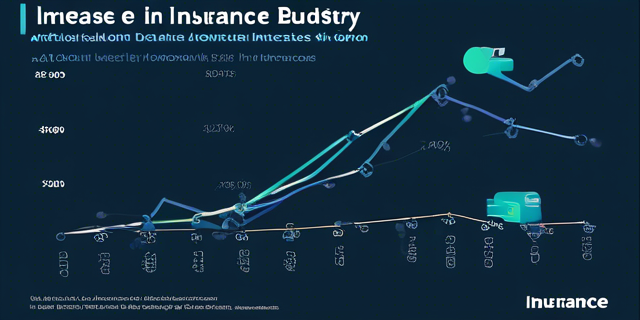The Top 5 Benefits of InsurTech 2024

Introduction
InsurTech, the integration of insurance and technology, has been revolutionizing the insurance industry in recent years. This innovative approach combines cutting-edge technologies, such as artificial intelligence, machine learning, and data analytics, to enhance the way insurance products and services are delivered. As the insurance industry continues to evolve, the benefits of InsurTech have become increasingly apparent, offering both insurers and consumers a myriad of advantages. In this comprehensive article, we will explore the top five benefits of InsurTech and how it is transforming the insurance landscape.
Improved Customer Experience
One of the primary benefits of InsurTech is the enhanced customer experience it provides. Traditional insurance processes can often be complex, time-consuming, and frustrating for customers. However, with the integration of technology, InsurTech is streamlining the customer journey, making it more efficient and seamless.
Through the use of user-friendly mobile applications, chatbots, and digital portals, customers can now access insurance services with greater ease and convenience. They can obtain quotes, file claims, and manage their policies all from the comfort of their own devices. This improved accessibility and responsiveness have led to increased customer satisfaction and a stronger sense of engagement with their insurance providers.
Moreover, the integration of data analytics and artificial intelligence has enabled insurers to tailor their offerings and communication to the unique needs and preferences of individual customers. This personalized approach not only enhances the customer experience but also fosters a deeper level of trust and loyalty between the insurer and the policyholder.
Enhanced Risk Assessment and Underwriting

Another significant benefit of InsurTech is its ability to transform the risk assessment and underwriting processes. Traditional insurance underwriting often relied on manual processes and historical data, which could be limited in scope and accuracy. However, with the integration of advanced analytics and data-driven technologies, InsurTech is revolutionizing the way insurers assess and price risk.
By leveraging real-time data from a variety of sources, such as telematics, wearable devices, and social media, insurers can gain a more comprehensive understanding of their customers’ risk profiles. This deep dive into data allows for more accurate risk assessment, leading to more personalized and competitive pricing for policyholders.
Moreover, the use of machine learning algorithms enables insurers to automate and streamline the underwriting process, reducing the time and resources required to evaluate and approve insurance applications. This increased efficiency not only benefits the insurer but also provides a more seamless experience for the customer.
Improved Claim Management and Fraud Detection
The insurance industry has long been plagued by challenges related to claim management and fraud detection. However, InsurTech is revolutionizing these critical aspects of the insurance process.
Through the integration of advanced analytics and artificial intelligence, InsurTech solutions are able to analyze vast amounts of data, identify patterns, and detect potential fraudulent activities more efficiently than traditional methods. This enhanced fraud detection capability not only protects the insurer’s bottom line but also ensures that legitimate claims are processed more quickly and accurately.
Furthermore, InsurTech is streamlining the claim management process by automating certain tasks, such as claim submission, status updates, and settlement. Customers can now file claims and receive updates in real-time, reducing the time and hassle associated with the traditional claim process.
Increased Operational Efficiency
One of the most significant benefits of InsurTech is its ability to enhance the operational efficiency of insurance companies. By automating various processes, such as policy administration, customer service, and data management, InsurTech solutions are helping insurers to streamline their operations and reduce overhead costs.
The integration of cloud-based platforms and cloud-native architecture has also enabled insurers to scale their operations more effectively, adapting to changing market demands and customer needs. This increased agility and flexibility have allowed insurers to respond more quickly to market changes and capitalize on new opportunities.
Moreover, the use of data analytics and artificial intelligence has enabled insurers to make more informed, data-driven decisions, leading to improved resource allocation, better risk management, and more effective targeting of customer segments.
Opportunities for Innovation and Collaboration

Finally, the emergence of InsurTech has opened up a world of innovation and collaboration within the insurance industry. As insurers embrace these new technologies, they are finding innovative ways to differentiate their offerings, create new products and services, and enhance their overall value proposition to customers.
The collaboration between traditional insurers and InsurTech startups has been particularly fruitful, as it allows for the sharing of expertise, resources, and ideas. This cross-pollination of ideas has led to the development of innovative insurance products and services that cater to the evolving needs of consumers.
Furthermore, the open and collaborative nature of the InsurTech ecosystem has enabled insurers to explore new business models, partnerships, and distribution channels, ultimately expanding their reach and unlocking new revenue streams.
Conclusion
The benefits of InsurTech are undeniable, as it continues to transform the insurance industry and deliver significant advantages to both insurers and consumers. From improved customer experience and enhanced risk assessment to increased operational efficiency and opportunities for innovation, the integration of technology is reshaping the future of the insurance landscape.
As the insurance industry continues to evolve, the adoption of InsurTech will become increasingly crucial for insurers to remain competitive, improve their service offerings, and meet the changing demands of their customers. By embracing the power of technology, the insurance industry can unlock new levels of efficiency, innovation, and customer-centric solutions, ultimately positioning itself for long-term success in the digital age.
FAQs
- What is InsurTech, and how is it different from traditional insurance? InsurTech refers to the integration of insurance and technology, where cutting-edge technologies such as artificial intelligence, machine learning, and data analytics are used to enhance the delivery of insurance products and services. In contrast, traditional insurance often relies on manual processes and historical data, making it less efficient and responsive to changing customer needs.
- How does InsurTech improve the customer experience? InsurTech enhances the customer experience by streamlining the insurance processes, making them more accessible and user-friendly. Through mobile apps, chatbots, and digital portals, customers can now obtain quotes, file claims, and manage their policies with greater ease and convenience. Additionally, the personalization enabled by data analytics and AI helps insurers tailor their offerings to individual customer preferences, fostering a deeper level of trust and engagement.
- What are the benefits of InsurTech in risk assessment and underwriting? InsurTech revolutionizes the risk assessment and underwriting processes by leveraging real-time data from various sources, such as telematics, wearable devices, and social media. This data-driven approach allows for more accurate risk profiling and personalized pricing, leading to more competitive and tailored insurance products. Furthermore, the automation of the underwriting process through machine learning algorithms enhances efficiency and reduces the time and resources required to evaluate and approve applications.
- How does InsurTech improve claim management and fraud detection? InsurTech solutions use advanced analytics and artificial intelligence to analyze large datasets and identify patterns that can detect potential fraudulent activities more effectively than traditional methods. This enhanced fraud detection capability not only protects the insurer’s bottom line but also ensures that legitimate claims are processed more quickly and accurately. Additionally, the automation of claim submission, status updates, and settlement streamlines the claim management process, providing a more seamless experience for customers.
- What are the operational benefits of InsurTech for insurance companies? InsurTech solutions help insurance companies improve their operational efficiency by automating various processes, such as policy administration, customer service, and data management. This automation reduces overhead costs and enables insurers to scale their operations more effectively. Moreover, the integration of data analytics and AI allows insurers to make more informed, data-driven decisions, leading to better resource allocation, risk management, and customer targeting.









